How an MMO turns free-to-play without losing its soul
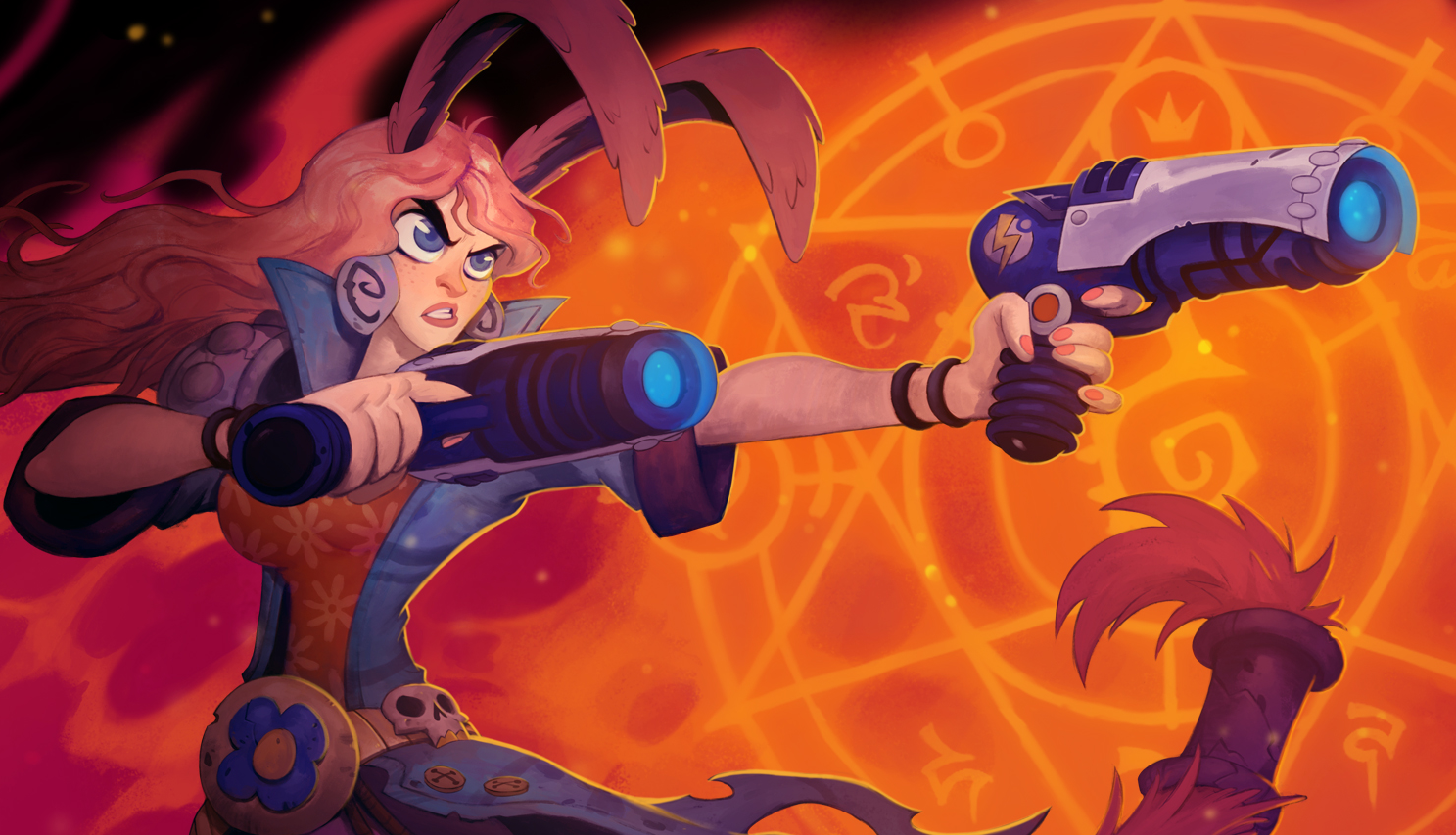
WildStar, for all its bouncy enthusiasm, hasn't had the easiest go of things. Despite the warm reception the game received at launch, it felt like everything has been downhill from there: subscriber numbers continued to dip following its release, Carbine suffered a wave of layoffs last year, and new content wasn't always in a polished state. Things were looking bleak for the subscription-based sci-fi MMORPG. But talking with product director Mike Donatelli and creative director Chad Moore, you would never know it. If anything, the troubles that Carbine have weathered since launch has only strengthened their resolve to deliver a better, more accessible game. With WildStar dropping its subscription for good and relaunching as WildStar: Reloaded this week, they seem better poised than ever to do just that.
"Obviously we made a few missteps along the way," says Moore. He has been with the studio for almost a decade despite WildStar being Carbine's only game. "What I will say now—and I've said it a lot—I think that the core of WildStar was always really good. I think that some of the supporting framework around it was a little shaky."
That supporting framework, according to Donatelli, had a lot to do with the fact that WildStar was being created for a market that, when the game launched, no longer existed.
"When I started, this was a sub game and the systems were built to support a subscription, and there were multiple subscription-based games out there that were doing just fine!" Donatelli tells me.
When WildStar arrived alongside other popular MMORPGs that year, it wasn't long before the team realized that subscriptions were no longer as tolerated as they once were. Donatelli explains that, as he sees it, the term ‘free-to-play’ has evolved rapidly over the past few years. What used to be products that were free because the quality of the game was much lower has now grown into a healthy ecosystem that benefits both consumers and, as Donatelli hopes is the case for WildStar, developers too. But regardless of how the transition to free-to-play affects WildStar, Donatelli believes that subscription fees aren't the future of the genre. "I would never want to make another subscription game—not in the current market," he says.
While dropping the monthly fee might seem like a small change, Moore and Donatelli couldn't stress enough how much effort had to be poured into shifting gears on WildStar's future. Alongside a huge host of mechanical changes that have been made to the game for its free-to-play release, they also had to dedicate a large portion of the last year to figuring out how to bring WildStar to a new audience without compromising their original vision.
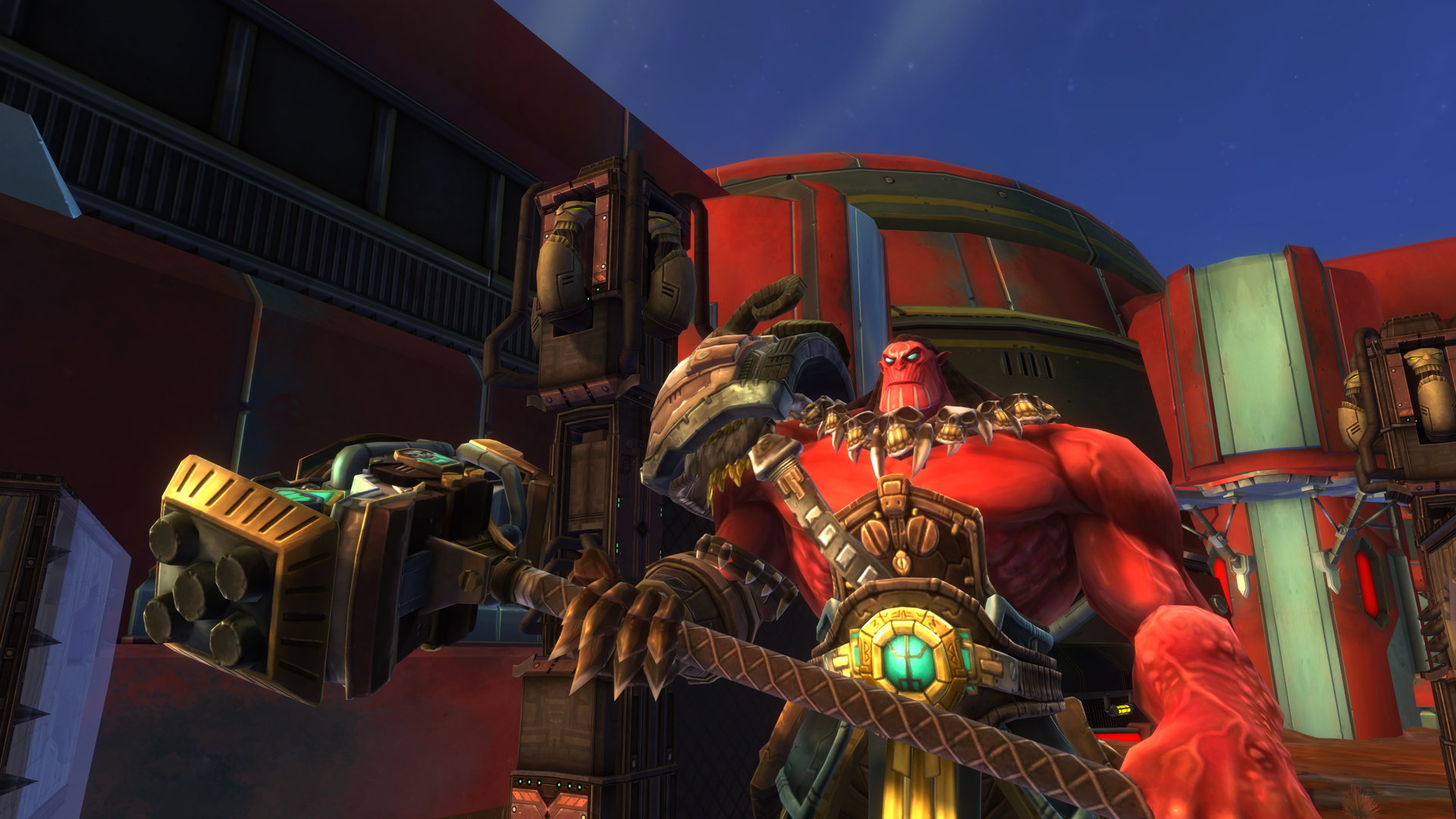
"It was a battle. But we were all on the same page where we never wanted to sell power, and we wanted to make sure that players, whether they wanted to spend money or not, could access the same kind of stuff," says Donatelli.
The biggest gaming news, reviews and hardware deals
Keep up to date with the most important stories and the best deals, as picked by the PC Gamer team.
Switching to free-to-play can rightly make a lot of potential and existing players very anxious. The financial model is vulnerable to all manner of corruptions in pursuit of getting players to cough up their cash. Donatelli was honest about the difficulties the studio had about wanting to find the best balance between making WildStar financially successful enough to continue supporting it but also avoid gouging their customers by being too greedy. "We just want you to pay us money so we can make more WildStar."
"I would never want to make another subscription game—not in the current market."
Having a monthly fee wasn't the only nail in the coffin of WildStar's hopes of a successful first year. There were several factors that led to the game quickly leaving player's hard drives, factors that Carbine has been hard at work addressing. WildStar's gruelling raid attunement, a series of objectives players had to complete before taking part in the raid, has been shortened from 12 steps down to four. And that's only one example of how the game is an overall smoother experience.
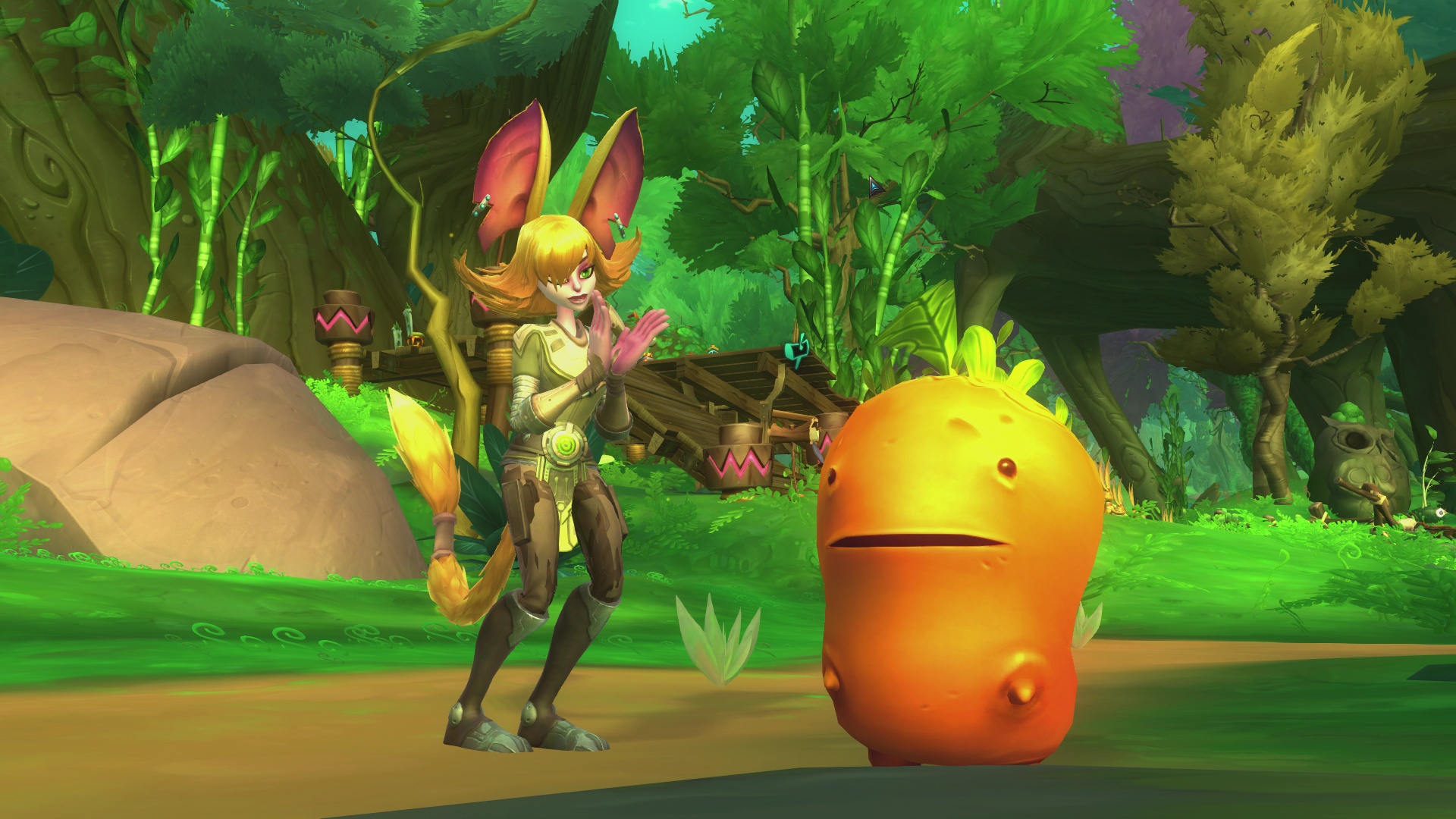
While the team spent a considerable amount of time building the in-game cash shop and balancing other aspects of WildStar in preparation for dropping the monthly fee, they've also been hard at work polishing and adding new content at a fairly rapid pace. When I jumped back into WildStar in preparation for the free-to-play launch, I was surprised by how much it had grown. Despite waning numbers of players month after month, the team has been adding new dungeons, new Shiphand missions (dungeons that can be played alone or as a group), new zones, and more.
"We learned a lot in the months after launch," Moore says. "There is a huge difference between a development studio and a live studio. The team we have now is significantly changed and matured from the time when we launched the game."
"Our number one challenge when we came out of launch was that, hey, we made this game, and now we need to figure out a way to get players a good, steady stream of content."
Donatelli adds that, before the launch, he didn't appreciate the amount of effort that would go into both supporting WildStar as it is while making new content for it down the road. Before launch, Carbine was pretty adamant that the game would see monthly content updates. Compounded with their financial woes, the team realized that monthly updates might have been a bit too high of a bar to reach. They had to adjust. Since then, the team has settled into a very "stable" quarterly update schedule. "You could time a watch to it," Donatelli jokes.
A subscription fee isn't the only thing that will be left in the dust today because WildStar has also been abandoning its vision for a revival for the hardcore MMORPG experience. "I think there was a certain nostalgia for that kind of gameplay," Moore says. "It wasn't reality. People can't—and don't—play that way anymore."
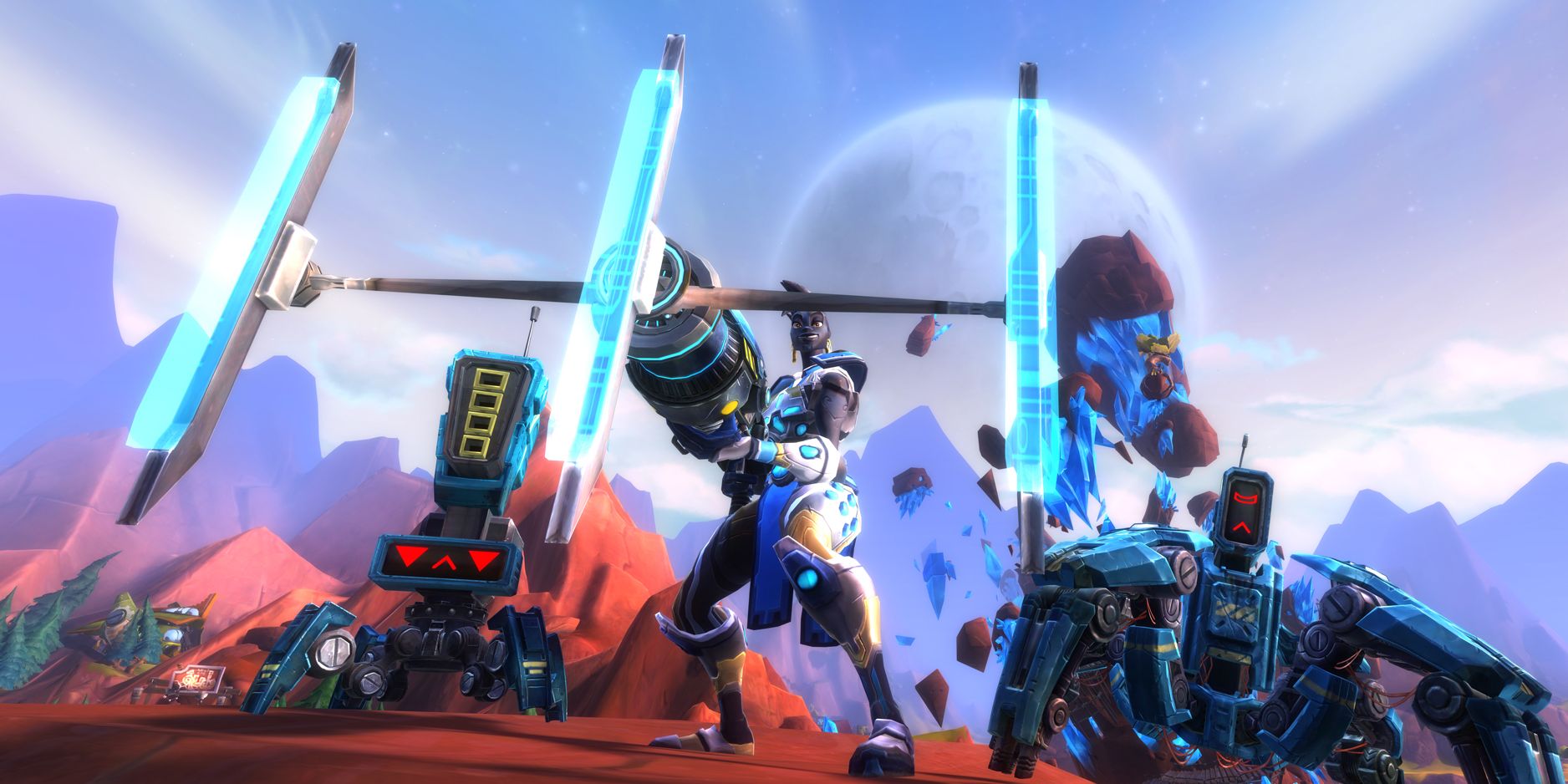
Before launch, WildStar billed itself as a return to the glory of World of Warcraft before Blizzard's integrity was sullied by such abhorrent pursuits like 'convenience.' WildStar boasted 40 man raids that were designed from the ground up to be the most challenging content ever created in an MMORPG. But according to Moore, WildStar was placing bets on players who didn't realize that, despite what they might think, they didn't actually want that style of game.
"You can find these comments, they are everywhere, where people are like, yeah man, I thought that was going to be a great idea too," Moore says. "They realized they're not 20 years old anymore."
Throughout the interview, as Moore and Donatelli walked me through the the large number of changes that WildStar has undergone since release and will be undergoing this week and in the following months, the word "accessible" came up a lot. While WildStar still retains much of its challenge, the team is intent on crafting an experience that also caters to the way that modern players approach MMORPGs. Features like contracts were added to the game, which give players easily digestible objectives to pursue in a short play session that still provide meaningful progression and rewards.
"Before launch, WildStar billed itself as a return to the glory of World of Warcraft."
"We needed to start looking at faster ways to get in, enjoy the game—play it, and then log out and go to bed because you have to get up early or whatever," says Donatelli.
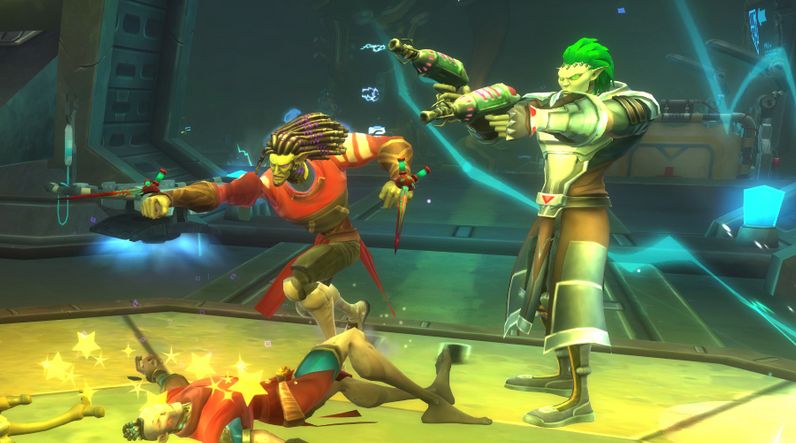
One aspect that was infuriating for the WildStar community was the way character stats affected each class differently. Where one class would rely on one stat for damage, a different class would need to focus on another, a problem that confused plenty of players. For the free-to-play update, Carbine has replaced the system with six main stats that impact each class equally. Though it seems like it might be a minor adjustment, it took months to implement. The team had to essentially re-balance the game with new math and then apply those changes to each item individually.
While raiding still remains the core focus on WildStar's endgame, Carbine also included veteran Shiphand missions for players who don't have the time to dedicate to a sweaty evening of slamming their head against WildStar's brutal raid bosses. The more the team explained to me, the more it was evident that WildStar is a more flexible game than ever.
The changes don't stop there. WildStar: Reloaded will also introduce a host of systems to help improve the quality of life of players, making it more approachable for every audience. Housing plots have been expanded to give players more options for building their home, a new tutorial is much shorter and allows players to tailor the experience based on their familiarity with MMOs, and a new content finder has been added to make queuing for dungeons easier while also providing suggestions on where to spend your time in Nexus.
Carbine is even addressing a slight imbalance in player population due to the fact that players seemed to gravitate toward the fluffy-tailed Aurin over their mad-scientist cousins, the Chua, from the opposing faction.
"People love the bunny people," Moore jokes. The team is working to find new ways of making the Chua, who, quite frankly, look like fat rats, more appealing. Moore says my suggestion of simply making the Aurin uglier will be taken under consideration.
Awkward revelations about how players like to portray themselves in-game aside, Moore is adamant that the team is well aware of the need to make this second impression count. For that, they are leaning on their small but dedicated fans to help spread the word.
"We just have to depend on the fact that there is still a core group of lovable lunatics that are in this game all the time," Donatelli adds. "We have a crazy community, and I hope that they're going to help get the word out there."
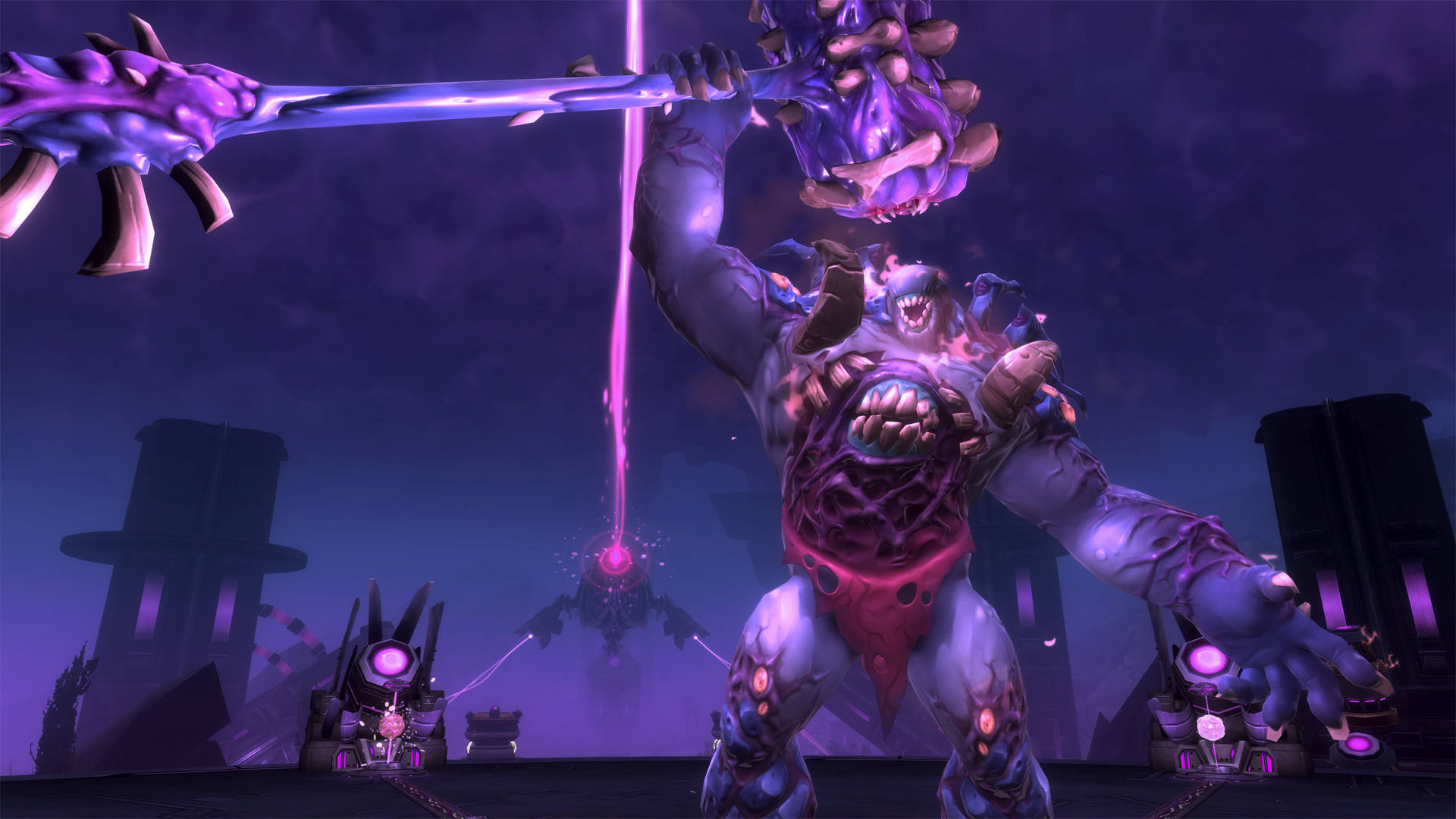
While an MMORPG is only as good as its next update, the team wasn't willing to divulge any specifics on the future of WildStar in terms of major expansions to the core game. They were quick to reiterate their quarterly update schedule and did tease the potential for a new raid arriving at some point in the coming months, but nothing concrete. There is a host of new community events taking place this fall and winter like bonus experience weekends, holiday events, and even the Hoverboard zPrix Invitational which celebrates the glory of WildStar's hoverboards in a race where players can win new boards, titles, and costumes.
If the last few years have taught us—and Carbine—anything, it's that MMORPGs are undergoing a pretty significant change. The old ways of playing them are transforming, and WildStar had the misfortune of existing in the awkward space between that change. Talking with Moore and Donatelli, it is evident that the team at Carbine is nothing but excited about this new free-to-play future for their charming sci-fi MMO.
"The whole point of what we tried to do with WildStar always had a purity to it, and I think that people are going to be able to feel that when they jump back in," Moore says. "I think they're really going to enjoy it."
With over 7 years of experience with in-depth feature reporting, Steven's mission is to chronicle the fascinating ways that games intersect our lives. Whether it's colossal in-game wars in an MMO, or long-haul truckers who turn to games to protect them from the loneliness of the open road, Steven tries to unearth PC gaming's greatest untold stories. His love of PC gaming started extremely early. Without money to spend, he spent an entire day watching the progress bar on a 25mb download of the Heroes of Might and Magic 2 demo that he then played for at least a hundred hours. It was a good demo.


